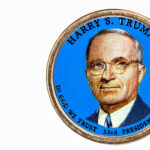The American Civil Rights Movement was a pivotal moment in American history, as it sought to end racial discrimination and segregation. One significant event within this movement was the landmark Supreme Court case decided on December 14th, 1964, Heart of Atlanta Motel v. United States.
The Heart of Atlanta Motel was a business that refused to rent rooms to African American customers, citing that it was within its rights to do so under state law. However, the Civil Rights Act of 1964 prohibited such discrimination on the basis of race, color, religion, or national origin in public accommodations, which were defined as establishments that serve the general public. The motel argued that the act exceeded Congress’ authority under the Constitution’s Commerce Clause, which grants Congress the power to regulate commerce among the states.
In a unanimous decision, the Supreme Court ruled that Congress did indeed have the authority to pass the Civil Rights Act under the Commerce Clause. The Court found that the motel’s refusal to rent rooms to African Americans had a direct impact on interstate commerce, as it hindered the ability of African Americans to travel freely throughout the country. Therefore, the Court concluded that Congress had the power to regulate the motel’s actions under the Commerce Clause.
This ruling was a major victory for the Civil Rights Movement and for the principle of equality under the law. It established that Congress could use its authority under the Commerce Clause to combat discrimination and protect the rights of all Americans. The Heart of Atlanta Motel v. United States case remains a crucial moment in the ongoing fight for civil rights in the United States.
References:




